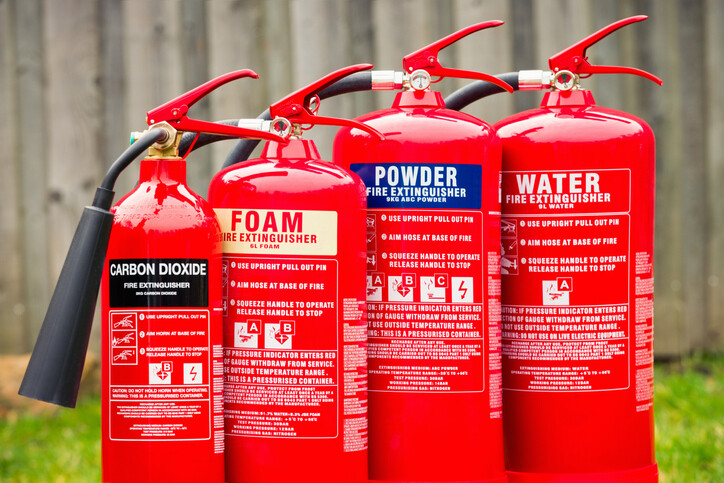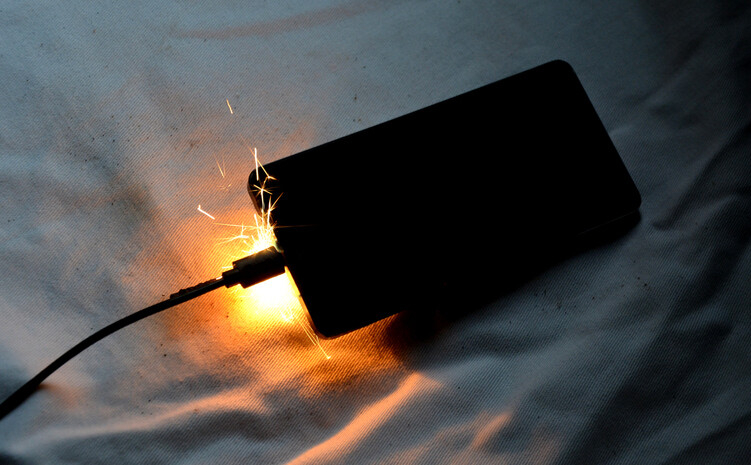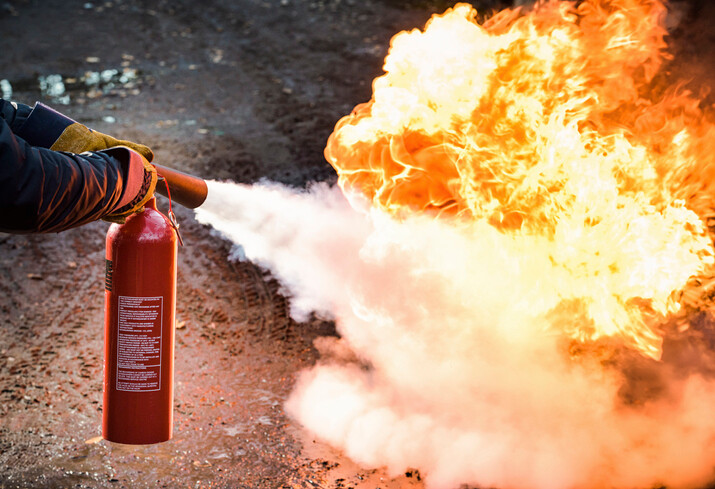 ... and Which Extinguishers Are Not Recommended to Tackle an Electrical Fire
... and Which Extinguishers Are Not Recommended to Tackle an Electrical Fire
A fire can be a terrifying emergency. Fire spreads fast and, when faced with this situation, our instinct will usually lead us to attempt to put it out with the first suitable thing we have at hand. A fire extinguisher is the perfect choice.
In an ideal world any fire extinguisher would safely put out any fire, however, this isn’t the case. Different fire extinguishers are designed to put out different types of fires. When faced with a fire, it is vital that you use the correct extinguisher to prevent further damage to your building or injuries to yourself or others.
Before attempting to extinguish a fire, remember that it is BAFE (British Approvals for Fire Excellence) regulation to first raise the fire alarm, and then ensure you have a clear exit route. BAFE requires that you are aware of your company’s fire procedures and follow these in the first instance. It is wise to be aware of BAFE’s Fire Extinguisher Guidance if you are considering hiring fire extinguishers so that you can make an informed and safe decision.
Extinguishing an Electrical Fire
There is a golden rule we are all taught about electrical fires from a young age: Never use water to extinguish an electrical fire. With this in mind, it is essential not to use a water fire extinguisher, a hose or buckets of water in an attempt to put out a fire involving electrical equipment or current.
You may remember from school chemistry or physics lessons that water conducts electricity. Although pure water does not conduct electricity, water with any impurities immediately becomes an effective conductor. Scientifically defined ‘pure water’ is extremely hard to come by. Household water will undoubtedly have impurities, so using the impure water from your tap or a water fire extinguisher will conduct the electricity.
 Using water to extinguish an electrical fire will create more damage because the electrical current will be conducted through the water. In trying to put out an electrical fire with water, you risk electrocuting yourself or causing further damage to the area.
Using water to extinguish an electrical fire will create more damage because the electrical current will be conducted through the water. In trying to put out an electrical fire with water, you risk electrocuting yourself or causing further damage to the area.
The safest way to extinguish an electrical fire is to use a CO2-based fire extinguisher. Carbon Dioxide does not conduct electricity, so it will quickly extinguish the flames of an electrical fire. CO2 smothers the fire’s oxygen supply, keeping you safe and reducing damage.
Electrical fires are classified as Class E fires. Faulty or malfunctioning electrical products can cause Class E fires. Common causes include mobile phone chargers or batteries, leaving hair straighteners switched on unattended or even a build-up of fluff in your tumble dryer. London Fire Brigade’s website provides helpful information on preventing electrical fires. If you are seeking to hire a fire extinguisher in order to be prepared for an electric fire, we recommend hiring our 5 litre CO2 fire extinguisher.
Extinguishing Freely Burning Materials
Fires that are started by freely burning materials are referred to as Class A fires. Class A fires are started by paper, cardboard, wood or fabric. Leaving a burning candle unsupervised or not following proper guidance when lighting a log fire are common causes of Class A fires. Fire spreads quickly. It’s essential to be prepared to tackle it using the correct method.
Freely burning materials can be put out with water, so a water extinguisher such as one of our 9 litre water extinguishers would be ideal for quickly tackling a Class A fire. However, it is vital to brief anyone who could use the water extinguisher to refrain from using it to extinguish electrical fires for the reasons covered in the section above. Foam extinguishers are also suitable for putting out Class A fires. We provide both 6 litre and 9 litre AFFF foam extinguishers for hire.
 Extinguishing Flammable Liquids
Extinguishing Flammable Liquids
Foam extinguishers are the best choice for extinguishing Class B fires caused by flammable liquids. PSM can supply both 6 litre and 9 litre AFFF fire extinguishers for hire.
AFFF stands for Aqueous Film Forming Foam. The foam effectively puts out Class B fires by smothering the fire, preventing flammable vapours from escaping. The foam creates a barrier between the flames and the surface of the liquid, putting the fire out.
It is recommended that commercial premises such as warehouses, factories and offices have a foam extinguisher alongside a C02 extinguisher for electrical fires. Any premises that store flammable liquids like petrol or oil must ensure they have foam fire extinguishers. If you have any questions about hiring foam fire extinguishers from us, please get in touch.
Fire Safety
Understanding and implementing fire safety measures must not be overlooked. Preparing may prevent the loss of valuable possessions and even the loss of life. Comprehensive fire safety risk assessment guides for various types of workplaces are available from the Fire Safety Advice Centre Website.
About PSM Plant and Tool Hire
Hiring a fire extinguisher is an excellent solution to meet fire safety regulations when running an event, conference or temporary set-up. At PSM, we offer fire extinguisher hire at competitive, affordable prices. Hire starts at only £10.40 a day, reducing to £13.00 for two days and just £18.20 for a week, exclusive of VAT.
At PSM Plant and Tool Hire Centres, all the fire extinguishers we have available to hire are BS EN3 approved, meaning they meet the legal requirements certified by the British Standards Institution.
PSM Hire has an outstanding reputation for safety. We have won the SafeHire Company of The Year Award at the HAE Awards for Excellence five times: in 2014, 2017, 2019, 2021, 2022 and 2023. You can trust us to help deliver the safe tools you require. If you have questions about fire extinguisher hire or any other services, our friendly, knowledgeable staff will gladly help. Please don’t hesitate to call us on 02088505658 or fill in our enquiry form.
Sources:
https://www.london-fire.gov.uk/safety/the-home/electrical-items/
https://www.firesafe.org.uk/ministry-of-housing-communities-and-local-government-guides/
